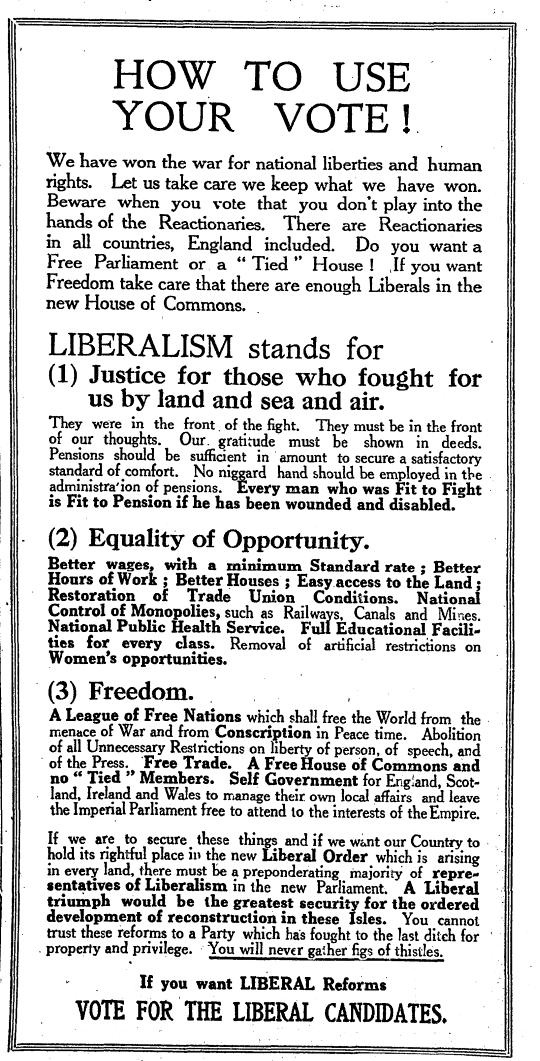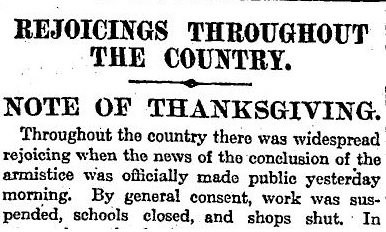We are developing the social individualist meta-context for the future. From the very serious to the extremely frivolous... lets see what is on the mind of the Samizdata people.
Samizdata, derived from Samizdat /n. - a system of clandestine publication of banned literature in the USSR [Russ.,= self-publishing house]
|
“A citizens’ assembly could break the politicians’ Brexit deadlock”, says a bevy of the great and good.
Remainer strategy:
1) Campaign for a REAL referendum on Europe.
2) When you lose the referendum, spend two and a half years complaining that it was nothing but a “glorified opinion poll.”
3) Campaign for a REAL glorified opinion poll.
NASA have announced that Voyager 2 left the heliosphere on 5th November 2018 (*albeit the exact scope of the heliosphere is vague). A dramatic drop in solar particles leaves Voyager 2, the first of the Voyagers to launch, but the slower and hence second to leave our solar system, whizzing off into interstellar space at 34,000 mph with a stack of Plutonium on board, the next planet is some 40,000 years away. It is now around 11,000,000,000 miles from Earth.
Voyager 2 left Earth on 20th August 1977, 16 days before Voyager 1, four days after Elvis died. Since then, probably over half the people on Earth have been born. France was yet to use the guillotine for the last time (well, pending further changes). Jimmy Carter was striving to be the worst US President in living memory. Concorde was yet to start scheduled services from London to New York. And the Queen was celebrating her Silver Jubilee.
In the world of popular music, ABBA were at their zenith. British Leyland were making Austin Allegros, David Owen was Jim Callaghan’s Foreign Secretary, planning no doubt for Ceausescu’s 1978 State Visit, when Madame Ceausescu was fêted by the Royal Institute of Chemistry. The accursed, groaning slave empire (h/t the late Auberon Waugh) we called the Soviet Union, was yet to invade Afghanistan, by then a ‘progressive’ republic, not yet wholly in Brezhnev’s warm embrace. And next door, the Shah still ruled in Iran. And the European Economic Community, having digested the UK, Ireland and Denmark, was working on welcoming recently democratic Greece by 1981 (Good call, that).
Coming back to the Voyagers, let’s pay tribute to the fantastic engineering of 1970s NASA in building a flying nuclear reactor so tough and durable that it can still run a probe some 41 years later, and the fantastic trajectories of the craft. Still sending back signals at 20 Watts, over 16 light hours away. A gallery of Voyager images is here.
The sheer scale of the Voyager journeys brings to mind the Total Perspective Vortex of the Hitchhiker’s Guide.
Perhaps, and I speculate wildly, the true purpose of the Voyager missions was to scour the Solar System for signs of something specific, and not found on Earth. They are both still searching, quixotically and heroically, and in the spirit of scientific enquiry, if not for signs of alien life, then perhaps for Theresa May’s integrity.
(Apart from the free trade bit)
This is an ad for the Liberal Party going into the 1918 General Election. Note that the Liberal Party split during the First World War with some following Lloyd George and others continuing to follow Asquith. This ad is for the Asquith Liberals. Also note this is not an ideological division; Lloyd George’s Coalition Liberals are standing on much the same platform. Also, also note that the statist rot set in well before the First World War.
In December 1918, this Liberal Party was more or less wiped out with Asquith losing his seat. In subsequent elections the general Liberal vote collapsed even further until by the 1950s the by-then re-unified party had only a handful of MPs.
 The Times 5 December 1918 p5
Had Samizdata or the internet existed on this day in 1933, Presidential Proclamation 2065 would undoubtedly have been Quote of the Day, and probably Quote of the Year as well.
Prohibition of alcohol in the US only lasted thirteen years. Of course that was time enough to give the Mafia their start, corrupt thousands of policemen and judges, and turn millions of previously law-abiding Americans into criminals, but in retrospect I stand in awe at how quickly the America of eighty-five years ago acknowledged and corrected its mistake.
Pity the same was not true of the ongoing and equally disastrous prohibition of drugs.
Public Eye was made from 1965 to 1975 and contains adult themes, outdated attitudes and language which some viewers may find offensive.
– Warning message put up by Talking Pictures TV prior to its re-runs of the series. For those unfamiliar with Public Eye, think Colombo meets The Rockford Files in the English suburbs.
The Sage of Kettering and I have been on another day trip, this time to Lincoln. We have also visited a mystery town I shall leave you to guess below, and also at Stow-by-Lindsey, a tiny village west of Lincoln, with a now incongruously large Minster, Anglo-Saxon in origin, having been added to over the years.

It also claims to have the earliest known Viking graffito in England, a carving of a long ship. It is not clear if this was a marauder or a merchant, but he presumably came up river to here, the Humber is not far away.

It also has a curious face on the font.

And an austere interior, perhaps barer than in its glory.

→ Continue reading: A Lincoln Lark
“One of the main targets of (Bishop of Lincoln) Robert Grosseteste‘s (c. 1175 – 9 October 1253) criticism was the Papacy, which he believed was levying over-harsh taxation in England and appointing inappropriate men to benefices in the Church.”
Another quote:
“Those rascal Romans….. he hated like the poison of a serpent. He was wont to say that if he should commit the charge of souls to them, he should be acting like Satan. Wherefore he often threw down with contempt the letters sealed with the papal bulls and openly refused to listen to such commands.”

Thus say English Heritage of Bishop Grossteste (Big Head) of Lincoln, in a display in the former Bishop’s Palace in Lincoln. The Bishop was never canonised, perhaps because he was too holy. He was no fan of Rome, as English Heritage note, in their exhibition in his former palace.
A Protestant before the term was coined, and surely a model for our current political class in the light of current ‘difficulties’ from over the water.
I was always taught that the Maginot Line was a military white elephant – colossally expensive and easily by-passed. But this guy begs to differ – kinda sorta. Short version: it would have worked if it hadn’t been for those flibbertygibbet Belgians! Even so he doesn’t address the question of how Germany would have been brought to heel by means of an entirely defensive strategy.
I love this sort of challenge to the narrative and I understand that Samizdata’s own Bertrand Maginot will be joining me. For once.
Tomorrow is the U.S.’s Thanksgiving holiday. It is a fine time to reflect on the bounty that the productivity increases brought by capital accumulation and technological improvements have brought to us.
The cost of the ingredients of a Thanksgiving feast for ten are now said to cost an average worker their wages for under 2.25 hours of labor. A 16 pound turkey now costs less than what an average worker earns in an hour.
We live lives of such astonishing wealth that we scarcely notice it. Only a fool would rather be an Emperor in 1600 than a poor person living today. Compared to a king of several centuries ago, poor people in the developed world live in astonishing luxury. In the developed world, we eat fresh vegetables in midwinter, our homes are heated toasty warm in the winter and cooled and dehumidified in the summer, we travel in enormous comfort (no wooden wheeled carriages without shock absorbers for us, and indeed, we can fly to the other side of the world for a quite modest sum of money), our medical care is incomparably better, our beds more comfortable, our entertainment options beyond any ancient potentate’s wildest dreams. This is true even of quite poor people, at least in developed countries.
Whence comes this bounty? It is not because of union organizing, or minimum wage laws, or the triumph of the proletariat over the evil factory owners. Indeed, a few centuries ago, there were few mass production factories to triumph over.
No, the source of this bounty is productivity, and the engines of productivity are deferred consumption being invested in improved infrastructure (that is, capital accumulation), improved technology, and specialization. Thanks to our better means of making things and the sacrifices needed to construct those means, productivity per worker is orders of magnitude higher, and thus there’s more stuff to go around.
Centuries ago, it required something like 750 hours of human labor to produce a simple tunic; today it requires minutes of human labor. Almost no one is capable of truly internalizing this change. The shirt on your back once was a valuable capital good requiring four months of constant labor to produce. Now it’s not even worth repairing if it tears, it’s too inexpensive to replace it. Because of this change in productivity, even quite poor people in developed countries own many sets of clothing.
Centuries ago, there was barely enough food to go around, and often far too little, as a result of which starvation was common. It required constant labor by most of the population to produce enough food. Then, mechanization of agriculture set in, and the production of synthetic fertilizer, and pest control, and improved breeding methods; today, it requires very few people to grow more than enough food for everyone. There is so much food, in fact, that obesity has become a disease of the poor, an unprecedented development in human history.
So it is across the span of consumer goods. The amount of labor it requires to produce enough light to read at night has gone down by orders of magnitude, and the quantity of light produced by an ordinary lightbulb is 100 times greater than that of a candle at a tiny fraction of the price. Many goods didn’t even exist before; in my father’s youth there were no televisions, and now people can buy 4k 130cm flat screens.
We were assured by Marx in his writings that the unavoidable result of capitalism over the long term would be the persistent reduction in the quality of the lives of poor people. This was inevitable because capitalists would be forced to engage in greater and greater extraction of the surplus value of the production of their workers. As with essentially all of Marx’s predictions, this did not come to pass; indeed, the opposite has been true.
Marx’s views were based in an entirely counterfactual set of theories of how the world works. Sadly, even though essentially everything Marx claimed about economies and society has proven false, and although essentially every prediction he made has been falsified, and even though his ideas led to the deaths of at least 100 million people in the 20th century, Marx is still wildly popular with the supposed educated classes of our society. (Indeed, even though Marx’s vicious bigotries were the cause of as much or more horror than those of the fascists, it is still respectable for academics to call themselves Marxists. Calling yourself a Nazi will rightfully cause you to be ejected from polite society, but call yourself a Marxist and you can get tenure. But I digress.)
Sadly, the myriad of capitalists that have kept us fed, warmed, clothed, entertained, and healed are largely forgotten. Like fish forgetting they live in water, we forget most of the time that we owe so much to the market economy we are surrounded by, to the vast number and diversity of producers, bringing to bear astonishing specialization and division of labor, creating an incomprehensible number of goods.
We owe so much to people in the past denying their current wants to carefully invest in the future that they might have more tomorrow. It has been the capital they slowly accumulated for us over centuries that has made us all so comfortable. The resources carefully husbanded by capitalists looking to the future were converted into capital equipment of all sorts, from house insulation to computer networks, from injection molding machines to automated teller machines, from to MRI scanners to torque wrenches.
Ultimately, we owe everything to them, and to the never-ending quest for higher productivity among selfish people desperately trying to out-compete their brethren. To quote Adam Smith:
It is not from the benevolence of the butcher, the brewer, or the baker that we expect our dinner, but from their regard to their own interest.
So tomorrow, when I, as with millions of others sit down to have an unnecessarily large meal with my family, I’ll try to be mindful of how hard the struggle was to move from caves and huts to comfortable modern homes, from bare subsistence to feasts that can acquired by trading less labor than it used to require to make a chair leg, from a world lit and heated only by fire to one where I can sit in shirtsleeves reading comfortably at night while a freezing wind howls outside.
What’s even more amazing is this: if people cease to try to prevent the world from getting better, our descendants may pity those living today for our astonishing poverty, for they may someday be vastly richer than we are.
Today is the 100th anniversary of the armistice that ended World War I, which killed something between 15 and 19 million people, an astonishing and colossal waste of human life and potential.
Sometimes it is necessary to engage in violence to prevent even worse violence, but it is always a terrible thing when that happens, and is nothing to be celebrated. At best, the “victory” of the allies was that nothing particularly worse happened, although what happened (including the deaths of about 2% of the population of Great Britain and 4.25% of the population of France) was pretty much as awful as one would imagine to begin with. As an anti-nationalist, I note that there is no good reason to believe the deaths of millions of Austrians and Germans (something like 4% of the population in those countries) was any less of a tragedy. All deaths are tragedies, and all deaths are premature.
War is not glorious. It achieves no great goals. It cures no diseases, it bridges no rivers, it builds no great cities, it does not launch people into space, clothe the naked, or feed the hungry. Those are worth celebrating, those sorts of achievements represent mankind at its best. War does quite the opposite thing — it destroys resources in bulk, kills vast numbers of people, and sets back human achievement, sometimes by years, sometimes by decades or longer.
Nor is participation in war laudable. Sometimes it is necessary to defend oneself, but there is never any glory in it. Dying face down in the mud is tragic, not glorious, and World War I was almost nothing but one tragedy after another, over and over, multiplied by the millions.
So, today is properly a day of mourning, for a world that was happily growing in population, accumulating capital, and engaging in peaceful trade, which was rent asunder by a stupid, useless waste of human life.
At one point, this trauma was deeply etched into the minds of most average people, but the memory has faded as the generations have passed, and thus the world flirts with horror again and again. Humans do learn, but far too slowly, and there are many people who work actively to tell other people things that are not true.
Sadly, intelligence and rationality are not universally revered, and thus, many are forced to learn the same things over and over, with bloody results.
 THE ARMISTICE DAY, NOVEMBER 1918 (Q 80135) Crowd cheering outside Buckingham Palace during the Armistice Day, 11 November 1918. Copyright: © IWM. Original Source: http://www.iwm.org.uk/collections/item/object/205324739  The Times 12 November 1918 p10. Right click for full page.
It is traditional at this time of year to burn Guy Fawkes in effigy. My Catholic family never had a problem with doing that. Fawkes was a terrorist before the name was invented. But for variety’s sake, effigies of many public figures other than Fawkes have been put on the bonfire over the years. The town of Lewes is particularly known for its vigorous celebrations:
In 2001 effigies of Osama bin Laden were burned by the Cliffe, Commercial Square and Lewes Borough bonfire societies, causing the Lewes Bonfire to receive more press attention than usual, being featured on the front page of some national newspapers, as did the Firle Bonfire Society’s 2003 choice of a gypsy caravan. In 2014 police investigated complaints about plans to burn two effigies of Alex Salmond, the First Minister of Scotland, and one model was subsequently withdrawn from the event. In 2015 effigies of David Cameron with a pig, Jeremy Clarkson and Sepp Blatter were burned.
I don’t have much of a problem with that, either. All those mentioned chose to be public figures, apart from the pig.
However I do have a problem with the nasty jerks (nothing to do with Lewes) who made a cardboard model of Grenfell Tower, the building that burned down in June 2017, killing 72 people, and put that on their bonfire. To laugh and joke about innocent people dying in agony is despicable. The proper response is scorn.
The actual response in the UK of 2018 was to send Plod round to scoop up a load of “gaffer tape and white tags” in a clear plastic bag and carry it away for detailed forensic analysis. Given that the six “suspects” voluntarily handed themselves in, why it is deemed necessary to search for their fingerprints on discarded pieces of cardboard is not clear, unless it is intended to feature in the first episode of the long-promised CSI South Norwood.
“Grenfell fire: When does causing offence become a crime?” asks the BBC.
I don’t know, when does it? It wasn’t a crime when I was growing up. How odd to think in Lewes and elsewhere a tradition of burning public figures in effigy grew up and persisted in the centuries since 1605, despite rulers who were quite happy to chop off an ear or two as a punishment for seditious libel. Now we have the Human Rights Act and everything, but jerks get arrested for burning a cardboard model.
My guess is that the police know perfectly well that even in these days of declining freedom, this example of causing offence still does not qualify as a crime. The performance of evidence bags solemnly being carried away in front of the TV cameras as if they had discovered the lair of a serial killer was not as pointless as it might seem at first. The process was the punishment.
|
Who Are We? The Samizdata people are a bunch of sinister and heavily armed globalist illuminati who seek to infect the entire world with the values of personal liberty and several property. Amongst our many crimes is a sense of humour and the intermittent use of British spelling.
We are also a varied group made up of social individualists, classical liberals, whigs, libertarians, extropians, futurists, ‘Porcupines’, Karl Popper fetishists, recovering neo-conservatives, crazed Ayn Rand worshipers, over-caffeinated Virginia Postrel devotees, witty Frédéric Bastiat wannabes, cypherpunks, minarchists, kritarchists and wild-eyed anarcho-capitalists from Britain, North America, Australia and Europe.
|











